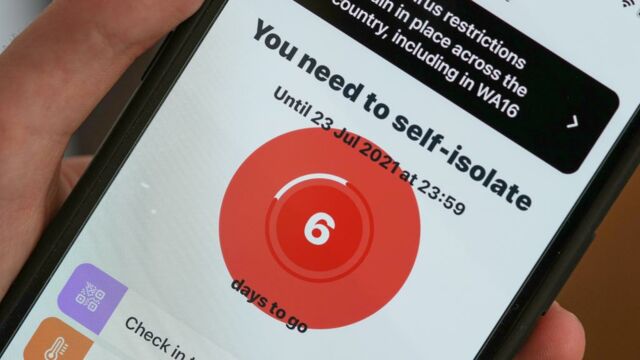New figures show that as many as 618,903 people had been ‘pinged’ by the NHS app in the week to July 14, resulting in a record number of people required to self-isolate and causing severe staff shortages across England.
Discover our latest podcast
Key workers to skip isolation
In an effort to stop the country from descending into total chaos, the government has announced that in some situations, critical workers would be able to apply for an exemption from self-isolation.
Industries include food production and supply, health and medical services, and border control. However, inclusion in the exemption isn’t automatic, and workers will be told individually by their employer whether or not they are allowed to come in for work. Boris Johnson announced the quarantine-dodging scheme earlier this week, stating:
We will protect crucial services, including the staffing of our hospitals and our care homes, the supplies of food, water, electricity and medicines, the running of our trains, the protection of our borders and the defence of our realm, by making sure that a very small number of named, fully vaccinated, critical workers, are able to leave their isolation solely for the work I have described.
The government revealed that only double jabbed workers whose absence would cause a ‘major detrimental impact on essential services’ would be eligible to skip quarantine. Workers will then also be required to take an initial PCR test followed by daily lateral flow tests. If results come back positive for COVID or the employee shows signs of coronavirus infection, they will then have to isolate. The new rules also apply only to England, with Northern Ireland, Scotland and Wales each following their own guidelines.
The new isolation guidelines will be in place until the 16th of August, when coronavirus rules will once again be revisited.
Which job sectors are eligible for a quarantine waiver?
The complete list of jobs and sectors that can apply for a quarantine exemption include:
- Energy
- Civil nuclear
- Digital infrastructure
- Food production
- Waste
- Water
- Veterinary medicines
- Essential chemicals
- Essential transport
- Medicines
- Medical devices
- Clinical consumable supplies
- Emergency services
- Border control
- Essential defence outputs
- Local government















